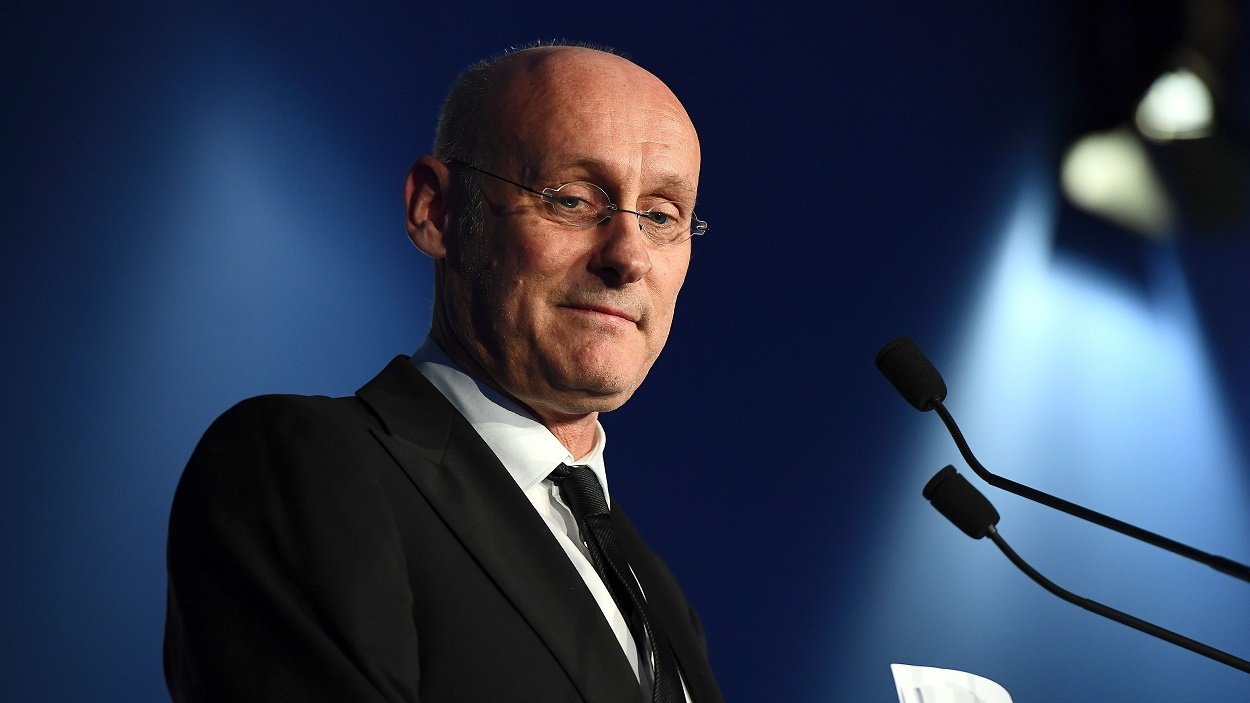A Bitter Leadership Battle Paves the Way For Big Changes in French Rugby

A self-proclaimed change candidate has won control of French rugby, and it will have consequences for every team from the national side on down. James Harrington delivers his take on the election of Bernard Laporte.
You may not have heard much about it, but a bitter battle has been raging in France for the past 12 months – with the immediate future of rugby in the country at its heart.
On Saturday, December 3, clubs from across l’hexagon finally decided the outcome of that long-running conflict – when they overwhelmingly chose former national coach Bernard Laporte as the new president of the Fédération Française de Rugby (FFR).
In the first round, Laporte picked up 52.56% of the votes from the 1,563 clubs in the FFR’s general assembly. Little more than an hour later, after some typical French electoral bureaucracy had taken place, he won the second round with a landslide 84.9% of the vote.
[rugbypass-ad-banner id=”1473306980″]
Make no mistake, Laporte’s election is a seismic shift in what was, until now, the very conservative world of French rugby.
He was very much the anti-establishment candidate. The change man. In this year of elite-bashing, the man who was for a while Secretary of State for Sport under Nicolas Sarkozy was French rugby’s elite basher-in-chief.
Now, he is commander-in-chief of the game in France.
He launched his campaign in September 2015, when he was still head coach at Toulon, with a populist manifesto declaring his intention to “give power back to the amateur clubs”.
His main opponent was the post’s very establishment incumbent, the 71-year-old Pierre Camou, who since his election in 2008 had – like the Roman emperor Nero – done little more than fiddle during the continuing decline and fall of the French national side.
Camou is not the only sacred cow of French rugby rapidly clearing his desk at Marcoussis. Jo Maso, Jean-Pierre Lux and Michel Palmié are among those also packing their bags ahead of the arrival of the new administration on Monday, December 5. There is no transition period here – Laporte goes from president-elect to president over the course of a weekend.
Meanwhile, Serge Blanco, Camou’s long-standing enforcer, has seen his dream of a national rugby stadium turn to dust in a political instant. The hour or so it took to confirm Laporte’s election is definitely not a long time in politics – and the new boss has made his opposition abundantly clear to what he has often dismissed as ‘the vanity project’ at Ris-Orangis, on the outskirts of Paris.
Now he is in charge, its future is on a knife-edge.
Laporte also wants to reform the domestic competition, though his hands may be tied on suggested plans to cut the Top 14 to a Top 12, after French pay-TV broadcaster Canal Plus signed a four-season €97million-a-year deal earlier this year for exclusive rights to the Top 14 between 2019 and 2023.
He wants to sponsor the French national side’s kit for €10million a year. To date, France has stood alone as the only Tier One nation not to have shirt sponsorship. That will change, so expect to see a financial institution on French chests in years to come. No alcohol, though – as alcohol sponsorship of sports in France is banned.
Most controversially, his support for current French coach Guy Novès has been unclear. Respected French rugby newspaper Midi Olympique reported on November 28 – two days after Novès had masterminded that epic-in-defeat performance against New Zealand – that Laporte had secretly sounded out Bordeaux-Bègles head coach Raphael Ibanez over the Marcoussis hotseat.
Laporte was quick to refute the claims, taking to social media to say: “Guy Noves has done a remarkable job as head of the French team.
“Without a shadow of a doubt I believe that today he’s the best coach for the national team. Rest assured, Noves will remain as coach.”
Which, if nothing else, proves he’s a skilled politician. He’ll need to be. His impressive record as coach at Toulon and France stands for little now he has given himself the toughest job in French rugby.


















